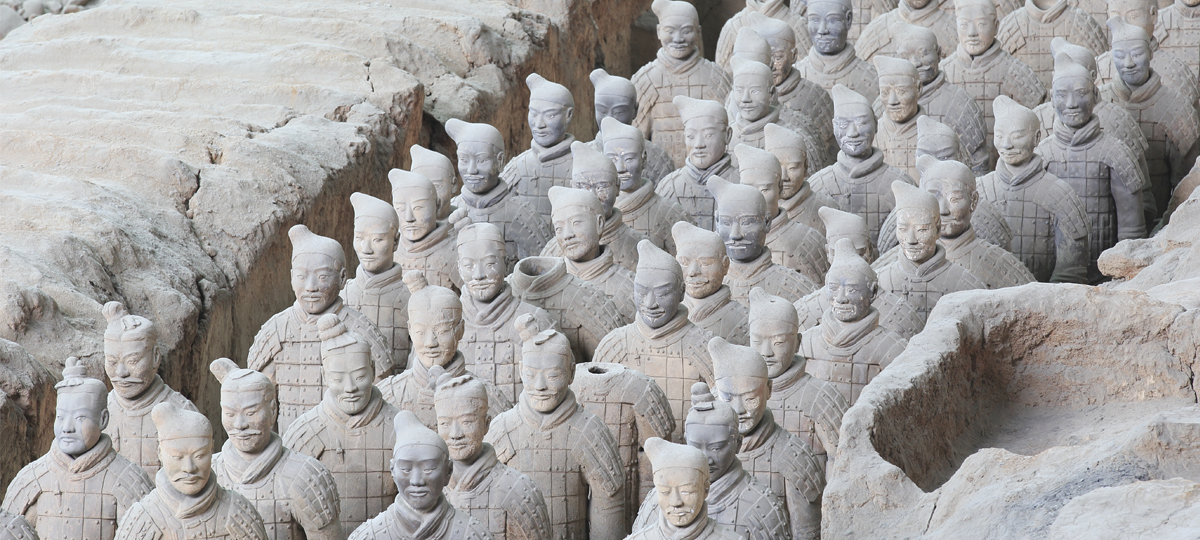CHINA TRAVEL TIPS
Time Zone
China operates on GMT + 8 hours. Despite its size, every place in China falls under one time zone.
Language
Putonghua (Mandarin) is the official language of China while in Hong Kong both Chinese (Cantonese) and English are the official languages but the vast majority of Hong Kong residents use Cantonese as their native language. Currently 88.9% of the population use Cantonese as their native language, while 4.3% speak English and 1.9% speak Mandarin.
| English | Mandarin |
|---|---|
|
Good morning |
Zao An |
|
Good evening |
Wan An |
|
Goodbye |
Zai Jian |
|
I'm fine |
Wo Hao |
|
Excuse me |
Bu Hao Yi Xi |
|
Thank you |
Xie Xie |
|
Please |
Qing |
|
Yes |
Shi |
|
No |
Bu Shi |
|
Toilet |
Xi Shou Jian |
|
Water |
Shui |
|
How much? |
Duo Shao Qian |
|
That's expensive! |
Ti Gwei Le! |
Currency
RMB (Renminbi) is the name of the currency system in China and is comprised of three units: Yuan, Jiao and Fen which come in both paper notes (Yuan and Jiao) and coins (Jiao and Fen).
The Hong Kong Dollar is the official currency of Hong Kong – it is pegged to the value of the U.S. dollar.
Money Matters
ATMs
China: ATMs are now in widespread use in all major Chinese cities – they are found at most banks and their branches as well as in shopping malls and some hotel lobbies. Your guide can always take you to an ATM machine. Currently most ATMs will take foreign bank cards and credit cards but do note you might be charged a transaction fee by your bank or credit card company. Visa and Mastercard are accepted by most ATMs while American Express is less frequently accepted.
Hong Kong: ATMs are easily accessible throughout the city and can be found in banks, metro stations, the airport and the train station. Global Access, Plus network, Visa, Mastercard and American Express credit cards are available at ATMs.
Credit Cards
China: Major credit cards including Visa and Mastercard are accepted in almost all hotels, better shops and restaurants in all major Chinese cities. Please note, however, that sometimes internationally issued credit cards (i.e., issued outside of China) might be rejected.
Tipping
Tipping, while not universal throughout China, has become an increasingly common practice among international travelers. This includes guides, drivers, hotel bell and restaurant staff in major Chinese cities including Beijing, Shanghai, Chengdu, Hangzhou, and Guangzhou. The amount is discretionary for guides and drivers (please consult our suggested tipping guidelines) while for restaurant staff 5% - 10% is recommended.
Weather
China is an enormous country with wide-ranging climatic conditions, so a decision about the best time to visit should be based on the regions travelers plan to tour and the kind of weather they enjoy.
Spring (mid-April – early June) and autumn (mid-September through early November) are the two best times of the year to travel anywhere in China. Both seasons have pleasant temperatures which range anywhere from 15 C to 22 C (59 F – 71 F) and precipitation is generally light.
Summer (from June to the end of August) is hot and humid throughout the country (except in high altitude regions like Tibet) with high temperatures over 25 C (77 F) often reaching 36 C (97 F) during the daytime. Summer, throughout all regions of country (other than high altitude areas), is hot and humid and is also the wettest period of the year.
Winter can be cold especially in the north and northeast with temperatures dropping below 0 C (32 F) and sometimes as low as – 10 C (14 F) but off-season travel can also offer its rewards. For example, the Harbin Winter Ice Lantern Festival is a charming event.
Clothing
When in China, dress for comfort and with consideration for the local population's penchant for modesty. If dining in fine restaurants in international hotels, smart casual attire (a jacket for men and a dress for women) is appropriate.
It is best to pack lightweight, dry cottons for summer, and prepare for weather extremes in spring and autumn. Layers are a good idea, as is a light raincoat. Warm night clothes are strongly recommended in Tibet.
China entails a great deal of walking so sensible, comfortable footwear is essential. All hotels offer same day laundry service.
Health
It is important that you check with a qualified health professional for the most current information concerning your travel itinerary and personal health history.
China, in general, is a safe place to travel, however we advise you to only consume bottled water. Do not drink tap water even in your hotel room and use the bottled water (provided by your guides and drivers) for tooth brushing. You should avoid possibly contaminated food, particularly seafood, unwashed vegetables and fruits that are already peeled when they are served.
There is no requirement for vaccinations when travelling to China (except for Yellow Fever if you are arriving from an infected area) but please note that this may change as of 2021 in light of the COVID-19 pandemic.
It is also suggested that you bring a smaller traveler’s kit with remedies for minor stomach ailments or motion sickness. You should include an adequate supply (in your hand luggage) of any prescribed medication you may require while traveling. If you are travelling to Tibet or any destination of high elevation, we also recommend you to bring along any high attitude illness medication and consult your physician beforehand.
We do recommend that you take out comprehensive travel insurance to cover you in the event of a medical emergency.
Electricity
The electric current in China is 220 Volts/50 Cycles.
If purchasing an adapter make sure it has different plug sizes as they vary from city to city in China. Most hotels bathrooms have a 110 volts flat pin (US style) outlet for electric shavers. Most hotels will have adaptor plugs which can be used for the duration of your stay.
Arrival and Departure Formalities
This is a guide only - please be sure to check the must current entry requirements for China (either through the Chinese Embassy or Consulate in your country) to be sure that you meet the correct requirements.
All visitors are required to carry a passport that is valid for at least six months beyond the intended length of stay. There should be sufficient blank pages for entry stamps upon arrival. A valid Chinese visa is required to enter China.
Almost all visitors to China do not require a visa for Hong Kong but please be sure to double check the latest requirements for visitors to Hong Kong.
Local Food
China is famous for its regional cooking styles which are now popular throughout most of the world.
Sichuan/ Hunan/Guangxi: Noted for piquant, zesty dishes flavoured by chili peppers, hua jiao (Sichuan pepper), garlic and ginger. A long growing seasons results in a rich and varied menu of dishes.
Huai/Hai/Hu: The Yangzi River Valley's close proximity to the East China Sea enhances its reputation as one of China's most important areas for seafood. The region’s nickname, “the land of fish and rice” suggests its abundance and variety of foods. Sweet sauces, liberal use of soy, sugar, salt and other distinctive flavourings distinguish the regional dishes. Steamed soup dumplings, “Xiao Long Bao” are among the most popular local specialty.
Yue (Cantonese): Considered the freshest tasting of all regional cooking styles. Guangdong province (including Hong Kong) is noted for its abundant fresh and saltwater fish, abundant vegetable and fruits and a penchant for creative cooking. Fresh steamed fish is a favourite of Cantonese cuisine while Dim Sum (Yum Cha) is a popular style of eating.
North China: Traditionally this was not a rice producing region so wheat milled into flour to make dumplings and noodles is the staple. The famous of all norther style dishes is Peking (Beijing) Duck popularized in Beijing so much so that it is the standard by which all northern style dishes are judged.
Local Handicrafts
China offers a wide variety of goods for shoppers. Items can be purchased in department stores and government friendship stores, or at the free shops and markets. Textiles, precious stones, embroidery and minority handicrafts are among the most typical souvenirs.
With an arts and craft tradition spanning thousands of years, China is a wonderful place for shopping. Chinese crafts like cloisonné, jade carving, silk weaving, woodworking, carpet making and embroidery are found throughout the country and are esteemed for the quality of workmanship. Today shopping is convenient as there are many department stores, specialty shops, galleries and boutiques to shop in.
Chinese calligraphy and painting are also famous and larger cities have fine galleries and museum shops that offer lovely works.
Shipping is possible but please remember that there can be delays and issues of quality control to consider.
Other Notes
Taxis are available in all major Chinese cities. Passengers can hire taxis at hotels, train stations and airports as well as flagging them from the street. Unless otherwise specified, taxis should be metred in all major cities. Taxis are relatively inexpensive and drivers courteous. It is advisable to have your guide or the hotel concierge write out the destination (in Chinese and English) and any other instructions you may have for the driver.
The two most important holiday periods in China are the Chinese New Year or Spring Festival which falls between late January through mid-February and the National Day Holiday Week (now officially observed from October 01 – October 08) – these can be busy times to visit China so be prepared for large crowds as major sightseeing venues.




